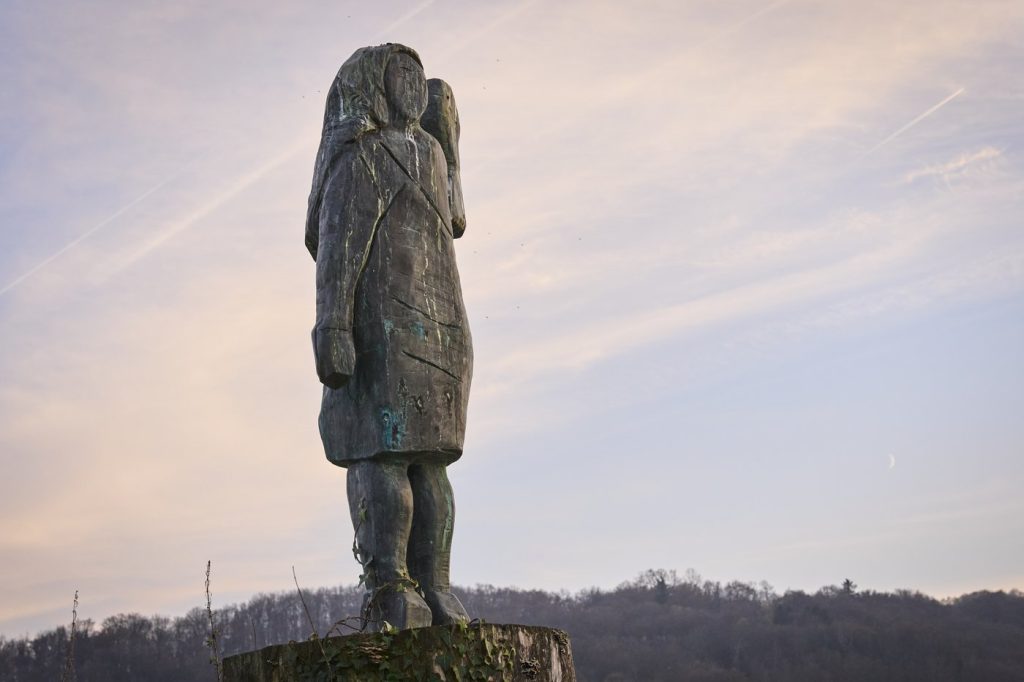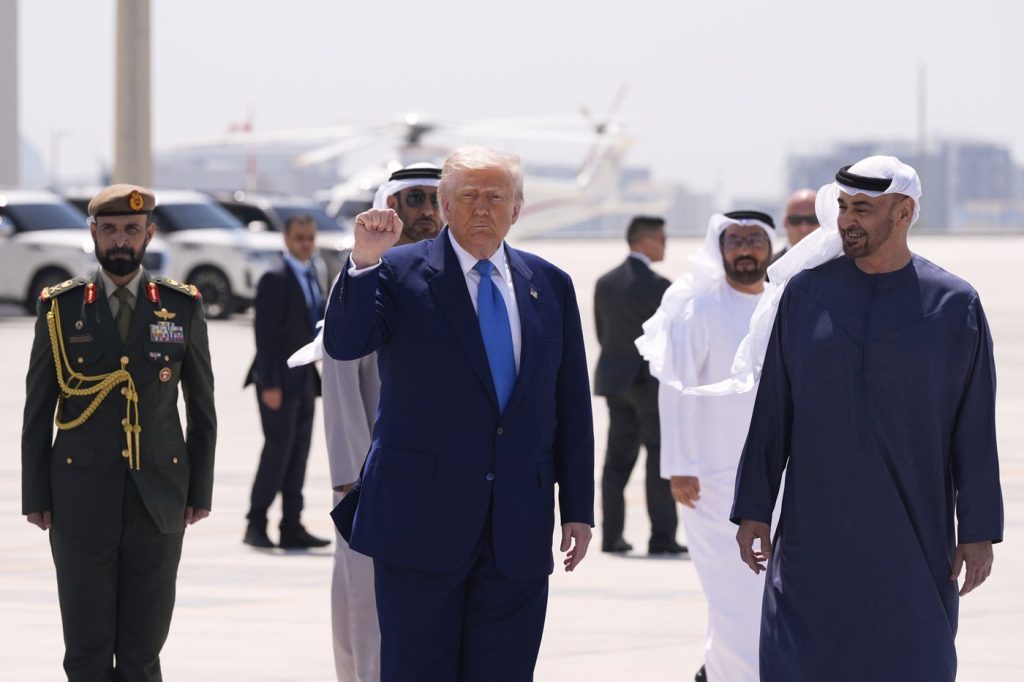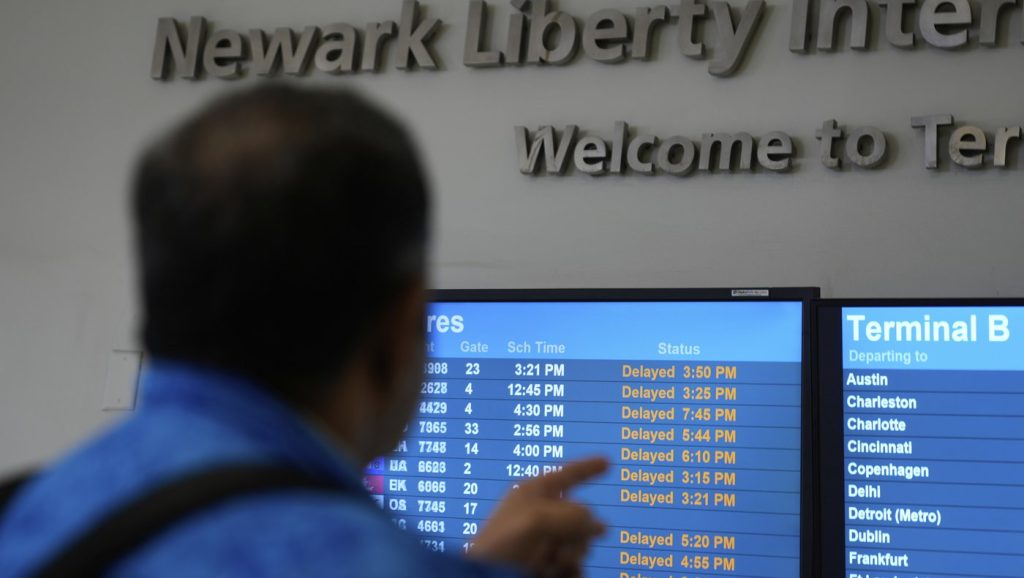LJUBLJANA, Slovenia (AP) — Police in Slovenia are currently investigating the disappearance of a bronze statue depicting U.S. first lady Melania Trump, which was reported stolen from her hometown. The statue, which was sawed off and carried away, has raised concerns and questions regarding its theft.
The life-size sculpture was unveiled in 2020 during the presidency of Donald Trump, near the town of Sevnica in central Slovenia, where Melania Knavs was born in 1970. This bronze statue replaced a previous wooden statue that had been set ablaze earlier that same year. Police spokeswoman Alenka Drenik Rangus announced on Friday that the authorities were made aware of the statue's theft on Tuesday and are actively working to identify those responsible for the missing artwork.
According to reports from Slovenian media, the bronze statue was cut off at the ankles before being removed from its location. The sculpture has drawn mixed reactions from the local community. Franja Kranjc, who operates a bakery in Sevnica known for selling cakes bearing the name of Melania Trump, commented on the situation. Kranjc expressed that the statue would not be missed in the community, stating, "I think no one was really proud of this statue, not even the first lady of the USA. So I think it's OK that it's removed."
The original wooden statue, which was a simple representation cut from a linden tree, was set on fire in July 2020. The wooden figure portrayed Melania Trump wearing a pale blue dress similar to the one she wore during Donald Trump's presidential inauguration in 2017. In contrast, the bronze replica lacks any striking resemblance to the first lady, further fueling the debate on the statue's artistic merit and public perception.
As police continue their investigation into the disappearance of the bronze statue, the community remains divided on the significance and value of the artwork representing Melania Trump. The case has brought attention not only to the statue itself but also to broader discussions about artistic expression and public sentiment towards political figures.












